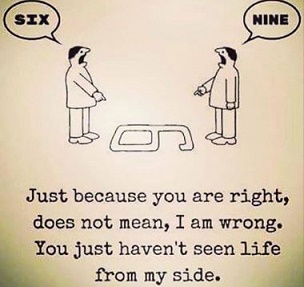Wealth , aquired outside or inside of politics ?
- ahorsebackposted 8 years ago
0
Why so many people have a problem with a wealthy man [or woman ] becoming a president , INSTEAD of wealth acquisition WHILE IN OFFICE , as is the political usual , simply baffles me . It really shows the lack of maturity of those who are vehemently against Trump !
Don't those on the left simply hate a wealthy person ?Careful now - the Clintons were dead broke when they left the office - Hillary said so! Why, they had to steal the furniture just to feed themselves!
Generalizing the whole shooting match to hating the wealthy is disingenuous. Ill gotten gains while legally done is what makes the situation very distasteful.
"ill gotten gains legally done" - isn't that a contradiction? Or are you setting yourself up to define "ill gotten" as anything you disapprove of?
Truthfully, calling legally acquired wealth to be "ill gotten" because you find the method used to be distasteful seems a little disingenuous itself.Ill gotten isn't always prosecuted as the fix is set with those who could be in charge of it. Bribes, campaign financing and overwhelming lawsuit persecution keep these things from happening. I knew you would personalize it.
I personalize it because you present no evidence or suggestion that it is even a semi-universal determination of "ill gotten". The only thing we can be sure of is that YOU disapprove.
Is not bribery illegal? Campaign financing that results in laws favoring one business and providing financial gain to them? "Overwhelming lawsuit persecution"? Not sure what the last is, but all the others are definitely illegal and gains from them would be considered "ill gotten" as a result. Understand that being illegal does NOT mean that a court judgement has been handed down - just that actions taken were in violation of the law whether caught, prosecuted and punished or not. What else, legal, would be considered ill gotten?My evidence is your naivete to think otherwise or that it is prosecuted by the very people who are on the take. Really your argument is just that, argumentative.
No. I'm trying to point out that what the vast majority of companies do is quite legal, and therefore cannot be considered "ill gotten" regardless of whether you think they should not have done it or not.
Example: a new company comes to town and lobbies state and local government to get their taxes reduced. They make more profit, at the expense of local tax payers, as a result. This is not "ill gotten" even though I highly disagree with the premise that those taxpayers need to foot the bill for that increase in profit. And I did make it very clear that prosecution/punishment is not necessary for it to be illegal - just that it is against the law.As I said. You are being very naive to think it is not more common then you say.
Then how about some examples? Places where companies have operated completely legally but should not have. Have gotten "Ill conceived gains" from legal means.
What do YOU mean by the term?Ill gotten gains by legal means. Many companies will, knowingly, do things which garner a profit but if found out will cause fines being levied or charges filed. You can't tell me that they don't attempt to factor how much profit will be left if found out. If it is profitable to proceed, they do.
Look at GlaxoSmithKline. They raked in an estimated $28 billion in sales of three drugs. They were fined $3 billion for wrongdoing. So, that means they grossed $28 billion after the fines (minus the legal fees, of course). Do you think the legality of their actions and the ramifications of being found out will keep them from going the same route again? If so, could you explain why?
But, as Don said legal and ethical are not always the same. Whether unethical is deemed illegal many times is determined not by anything other than which lawyer argues a better case.Nope - you missed it. "...if found out will cause fines being levied or charges filed." If the action is legal, what will those charges be and what will the fines be for? Those means are not legal at all, whether the company engaging i the activity is found out or not.
GlaxoSmithKline acted illegally, and garnered ill gotten gains. But that was never the question; it is can you act legally and still have those gains considered ill gotten.
I'm not convinced our justice system is very good at punishing (or even prosecuting) illegal activities - were Clinton's activities with the server illegal? Does failing to prosecute make them legal?The #1 donor to the DNC is the Trial Bar, believe it or not. Just about all (if not all) of the big hitting politicians are lawyers, or were. That is more than a monkey wrench.
Anyone taking money from a lawyer has ill gotten gains? A pretty strong statement there! (Would that include the church they donate to as well?, or any other charity like the Red Cross?)
I think her point was responding to your complaint that our justice system doesn't do a very good job of punishing or prosecuting. I think, basically, the system is set up exactly the way they want it so that lawyers make lots of money, to the detriment of the idea of justice.
I didn't say "anyone". What I posted was some food for thought, "The #1 donor to the DNC is the Trial Bar, believe it or not."
I'll add donors from Native American gaming casinos. There are groups of people who feel that gambling is morally corrupting because they have witnessed the ugly realities of it in their own lives and of others' lives.
And, organized labor donors are huge!
This is interesting, just to toss it out here: "While some outside groups -- like super PACs -- are required to disclose their donors, others -- such as 501(c)(4)s -- are not. These nondisclosing organizations can engage in a number of activities, including buying ads that advocate for or against a candidate, running phone banks and making contributions to super PACs." (churches, charities)
* https://www.opensecrets.org/outsidespen … losure.php
Leaves me with more questions than I care to try to answer.
But that is the point. A company doesn't have to act legally. They simply have to determine if the costs of their illegal actions (if caught and successfully argued in court) are offset by profits garnered by those actions. So, you can certainly say that no one gains through illegal actions but that isn't true.
Never forget that slavery was legal under US law.
So something that is legal is not necessarily ethical.
Just because someone gained wealth legally, doesn't mean they gained their wealth ethically."So something that is legal is not necessarily ethical."
This is true, its something Bastiat called "legal plunder". legal plunder is the act of appropriating, under the laws, of the property of others.
Legal plunder is state sponsored theft,
"Primary examples include welfare, food stamps, school lunches, and any other government program designed to ‘redistribute the wealth’ of a nation",
"Medicare and Medicaid are cleverly disguised forms of wealth redistribution"That's the thing with ethics. What one person considers ethical, another doesn't.
For example, I think it's ethical that part of the cost of living in a civilized society is contributing towards helping others in that society.
But I don't think it's ethical for a state government to make it as hard as possible for a woman to get a legal abortion, because some people have a personal religious belief about what constitutes human life. As far as I'm concerned, that's imposing state sponsored religion, which is unconstitutional. Others wouldn't agree. That's ethics for you."As far as I'm concerned, that's imposing state sponsored religion, which is unconstitutional."
And that brings up yet another quagmire to negotiate. For the religious, having that belief, also (very often) have a belief that they are the guardians of not only ethics but social behavior of everyone else. It is up to them to enforce their God's wishes, and that includes controlling the behavior of others. Anyone not agreeing obviously disagrees with the religions mandate to control actions of others as well, making for quite a mess." I think it's ethical that part of the cost of living in a civilized society is contributing towards helping others in that society."
I guess the fundamental difference between you and me is that both of us believe in giving back to the community but I believe in letting the individual not the state decide how much and to who. I also don't consider it a virtue to empower the government to steal for one person to give it to another.
My beliefs are in line with the unique view that the individual should be free to establish a government that answers to them and individual freedoms are not sacrificed for some Utopian ideal imposed by an elite group. Your beliefs are in line with the vast majorities of the failed and oppressive governments throughout history, that belief a small group of enlightened individuals are better suited to make decisions for the people, whether it be the divine right of kings or the deification of an elite group or leader (such as in collectivist governments).
Good point, and I will certainly agree that many of our laws are not ethical at all.
That still leaves the question I asked: who gets to decide what is "Ill gotten" and what will be the basis of making that designation? We have, in this country, a growing backlash against nearly all business - millions that have decided that any profit margin at all is ill gotten and should not be allowed. Will those be the people determining what is ill gotten?
We have businesses that increase profits by discriminating against certain groups (gays, maybe); is that ill gotten or are they heroes? We have people (and business) that make their living by exaggerations and/or lies (environmentalists, maybe): is that ill gotten gain? We have preachers doing the same; is the collection plate "ill gotten"?
Point being that ethics is a difficult area to base name calling on. Perhaps we better just leave it at illegal actions being ill gotten rather than insisting that our personal sense of ethics be the deciding factor?Who gets to decide?
Who decided slavery was unethical before it became illegal?
Who decided certain types of child labor was unethical before it became illegal?
Who decided women not having the right to vote was unethical before it became illegal?
Who decided making people with brown skin sit at the back of a bus was unethical before it became illegal?
This is not a new process. Social mores change over time.
Bit of an exaggeration to say people are "against nearly all business". And I don't think millions of people believe all profit is ill-gotten. I just think people have realized that placing profit above every other consideration can cause more harm than good, and that companies don't have to do that to be prosperous."Who decided slavery was unethical before it became illegal? "
Those that didn't own slaves.
"Who decided certain types of child labor was unethical before it became illegal? "
Those that did not participate in child labor, and likely had children themselves.
"Who decided women not having the right to vote was unethical before it became illegal?"
Women. Who then convinced men.
"Who decided making people with brown skin sit at the back of a bus was unethical before it became illegal?"
Those with brown skin, who then convinced others.
So - when it comes down to it anyone that doesn't like what someone else does to earn a living is entitled to label it "ill gotten" gains. And publicize exaggerations of the action, damaging the economic future of that someone else. Right?
"Bit of an exaggeration to say people are "against nearly all business". And I don't think millions of people believe all profit is ill-gotten."
I dunno, Don...We see an awful lot of anti business slogans, usually accompanied by...nothing whatsoever to back up what is being said. And certainly nothing to back up what is insinuated. As far as all profit - when we see thousands (millions?) of people up in arms over a 1 or 2% profit margin...well, it says something. They would not be satisfied with that themselves, but as long as it is a large business earning it somehow it becomes evil.
"I just think people have realized that placing profit above every other consideration can cause more harm than good, and that companies don't have to do that to be prosperous."
And of course no company does that - it is but a gross exaggeration of life, designed to raise emotions over big business. No business, for example, will put the life of their CEO in intentional jeopardy for a few dollars. No company will will openly bribe officials. No company will use infants for medical testing without a hope of improving their failed health.
There are lots of things companies won't do - to insinuate (strongly insinuate) that there is nothing they won't do for a dollar) is ridiculous.Didn't see anything about fines. I was responding to the question: who decides what is ethical?
The answer for those historical cases seems to be: those most negatively impacted by something, who then raise awareness of it and (try to) persuade others of their cause. Then ultimately I guess society at large "decides".
Anyone is free to say a company is behaving unethically. Just as any company is free to say they aren't, and sue for defamation if they choose.
Sure, there are people who are opposed to any form of capitalism whatsoever, but that doesn't mean everyone who criticizes big business is an anti-capitalist. Many people just want capitalism version 2.
Unfortunately history is littered with companies endangering life for the sake of profit. And sadly there are documented cases of drug companies unethically testing drugs on populations, including children. The Pfizer trovafloxacin trial in Africa is an example (11 children died). So I think there is historical evidence to suggest that companies will in fact do almost anything for the sake of making (or keeping) a profit. That's not a surprise to many people.LOL We crossed time lines. I posted, pasting a copy...that was about fines and then replaced it with what it should have been.
Little argument here, for I agree with all of it, although the Pfizer thing isn't quite as cut and dried as you make it out to be. Particularly that "there is historical evidence to suggest that companies will in fact do almost anything for the sake of making (or keeping) a profit."
That one little word changes the statement considerably. Before, it was "I just think people have realized that placing profit above every other consideration..." See the difference? It is major, IMO.
For companies are supposed to put profit above most other things - that's what those in charge are being paid to do. It is a rare company (outside of non-profits) that is told to be nice and not worry about giving owners an income.
And it all leaves us with everyone in the country screaming that every company is evil and needs disbanded. For there will be found, somewhere, at least one person willing to say that any specific action is evil.
Wouldn't we really be better off to quit demonizing corporations and work with the legal end towards ethical standards? Quit vilifying the people running those corporations, for no more reason than they violate our personal ethics, and get the law changed if indeed the majority agree with those ethics?
We don't see much (although there was some) screaming about gays not being serviced by business; instead we got the laws changed. Which has done more good, with less damage (such as splitting the country)? Which, then, is preferable? And if we can't get the laws changed, doesn't that say something about our own ethics vs those of the nation in general?
The mind control (brainwashing) isn't more clear when people are upset because Trump is going to lower their taxes. Like its something to be feared and hated to have more money in their pockets.
May they become givers of their excesses to help those less fortunate.
- Will Apseposted 8 years ago
0
Nursery chatter So sweet!
It would be unkind for the grown-ups to intervene.
I can't help a Rubio quote, though:
“If he hadn’t inherited $200 million, you know where Donald Trump would be right now? Selling watches in Manhattan.’’
By the way, the $200 figure is wrong. But in the Republican world accuracy does not matter. - calculus-geometryposted 8 years ago
0
Lots of US presidents were born into wealth like Trump. The objection to Trump as president is not that he's wealthy, but that he's a phony and incorrigible attention-seeker who's good at getting stupid people on both ends of the political spectrum riled up/fired up with his antics.
Related Discussions
- 118
Do the wealthy have an obligation (either legal or moral) to the poor?
by Billy Hicks 6 years ago
There has been a lot of discussion about class warfare, and the wealthy not paying "their fair share",so my question for you, my esteemed fellow Hubbers is this:Assuming that they are complying with all current laws and regulations, and paying what they are required to pay, by law: do the...
- 4
Do you feel that the sociocultural & socio-racial climate has gotten MUCH WORSE
by Grace Marguerite Williams 8 years ago
Do you feel that the sociocultural & socio-racial climate has gotten MUCH WORSE underPresident Trump relating to the LBGT community, Latinos, Muslims, & Blacks? Why? Why not?
- 102
Did Rachel Maddow overhype the Trump tax scoop and should she be prosecuted for
by Ralph Schwartz 8 years ago
Did Rachel Maddow overhype the Trump tax scoop and should she be prosecuted for an illegal act?MSNBC employee, Rachel Maddow, made her so-called scoop of President Trump's 2005 taxes seem like a big deal, when in fact all that it showed was he paid taxes....much more than anyone might have...
- 21
Obama, President Donald Trump Tie as Most Admired Man in 2019
by Readmikenow 5 years ago
“WASHINGTON, D.C. -- Barack Obama and Donald Trump are tied this year as the most admired man. It is Obama's 12th time in the top spot versus the first for Trump. Michelle Obama is the most admired woman for the second year in a row.Each year since 1948, Gallup has asked Americans to name, in an...
- 66
Here’s why the Senate needs to convict Donald Trump.
by jeff61b 4 years ago
We know there are political extremists on both sides who can be encouraged to do dangerous and violent things, but until now, every president, whether Republican or Democrat, has been careful in their rhetoric to avoid inciting the extremists in their party to commit violence.But Donald Trump...
- 83
Trump's appointment of Whitaker as AG. Is it legal?
by Randy Godwin 6 years ago
For many of us on the left, DT's putting a known anti-Mueller person in the AG's position is simply an attempt to quash the investigation into himself. Legal scholars are already saying the act is unconstitutional at best, and may be illegal at worst. Not to mention Whitaker's being involved in an...













